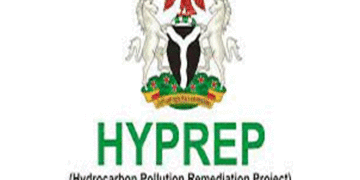President of the Nigeria Academy of Pharmacy and CEO of Business School Netherlands International, Prof. Lere Baale, has called for a transformative shift in how Nigeria funds and manages its healthcare sector to achieve universal health coverage and economic competitiveness.
In his paper titled “Unlocking the Value Chain in the Healthcare Sector through Veritable Health Financing Options,” at the 2025 Scientific Conference and Annual General Meeting of the Healthcare Providers Association of Nigeria, Prof. Baale stated that 76 per cent of Nigeria’s total health spending is funded out-of-pocket, pushing millions of citizens into financial hardship.
He said health should be viewed as a productive investment rather than a social expense, stressing that every 1 invested in health can yield 4 – 6 in economic returns through increased productivity, job creation, and more substantial human capital.
Baale’s paper breaks down the healthcare value chain into three levels: upstream (research and manufacturing), midstream (procurement and distribution), and downstream (service delivery). It reveals how financing gaps at each level weaken access, equity, and quality of care.
He proposed a “veritable health financing” framework on sustainability, equity, efficiency, and innovation. The model combines fiscal reforms with private-sector participation to make healthcare resilient and economically catalytic.
Prof. Baale identifies four major pathways to unlock the healthcare value chain: Public Investment and Policy Reform, Insurance and Risk Pooling, Private Capital Mobilisation and Innovation, and Pharmaceutical and Supply Chain Financing.
On Public Investment and Policy Reform, Baale said, “Expand the Basic Health Care Provision Fund (BHCPF) beyond its current ₦192 billion and increase government health spending above 4 per cent of GDP to support performance-based financing.”
On Insurance and Risk Pooling, he said, “Strengthen National Health Insurance Authority (NHIA) coverage, particularly among informal workers, through digital micro-insurance and community-based schemes inspired by Lagos’ ILERA EKO and Rwanda’s cooperative model.”
The renowned strategist urged Public-Private Partnerships (PPPs), diaspora bonds, and social impact investments to finance diagnostics, logistics, and digital health infrastructure.
He also called for promoting local manufacturing via credit guarantees, fair procurement systems, and working-capital facilities to ensure medicine security and reduce shortages.
Citing examples from Ghana and Rwanda, Baale noted that both countries achieved sustainable financing and high coverage through innovative fiscal measures, community engagement, and accountable governance.
“Nigeria’s healthcare future will not be built by chance, but by choice. If we commit to veritable financing, anchored in risk pooling, transparency, and innovation, Nigeria will save lives, catalyse industries, create jobs, and build resilience,” Prof. Baale stated.
He urged government, private investors, professionals, and development partners to adopt a “not more money, but smarter money” approach to ensure that every Naira spent delivers measurable results and shared prosperity.




